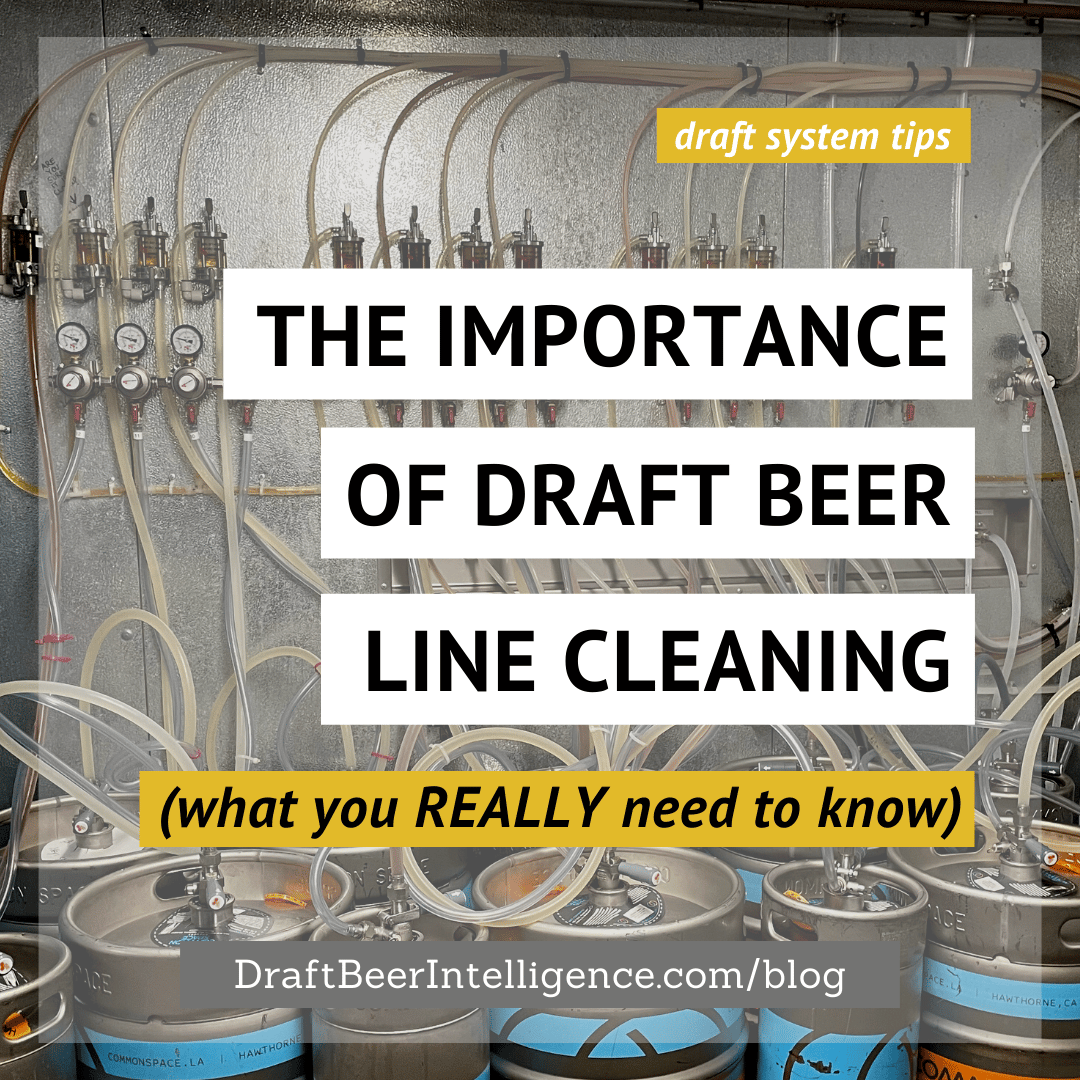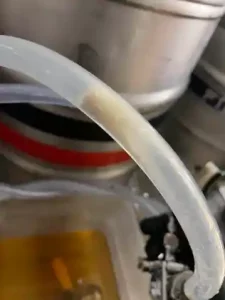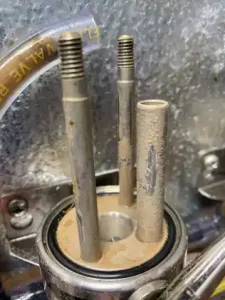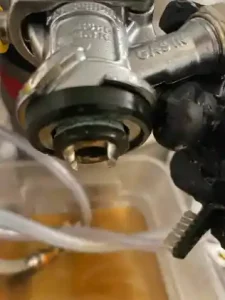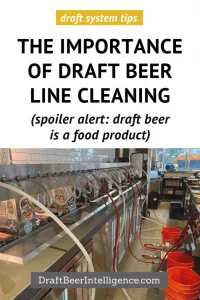We can find draft beer and beverage systems everywhere we go nowadays. The neighborhood restaurant, bars, stadiums, national restaurant chains, and breweries creating and pouring our favorite beers are all within arms reach.
But did you know that beer line cleaning is one of the most overlooked and neglected parts of draft beer system ownership?
Scary, right?! And the thing is…beer IS food.
Draft beer is a food product (aka liquid bread), and therefore, we should treat it no differently than any other food product.
The care and attention for handling food should be the same for draft beer systems. The standard for food handling should apply to all draft beverage products, i.e., wine, coffee, kombucha, tea, and cocktails.
We don’t treat beer like food in most of California, and unfortunately, this is the standard for most of the country.
Let’s dive into why proper draft beer line (and faucet) cleaning is so important…
Clean beer lines are vital to maintaining the quality of draft beer and other beverage products. Most batches of beer are tested throughout the brewing process to ensure consistency and quality from keg to keg.
Unfortunately, bad beer systems still pour beer; worse, dirty beer systems still pour beer.
You can ruin a beer in the time it takes the beer to travel from the keg to glass. In a poorly maintained or designed draft beer system, you can destroy a lot of beer.
As soon as a beer keg is tapped into a beer system, whether it is a long-draw or short-draw system, organic and inorganic deposits build up on the beer contact surfaces such as beer lines, keg couplers, FOBs, and beer faucets.
These deposits affect flavor and sabotage the draft beer system’s ability to pour quality beer. Therefore, a well-designed and diligently executed maintenance plan ensures trouble-free draft beer system operation and fresh, flavorful beer.
…but what are these organic and inorganic deposits?
What elements are we cleaning from the draft beer lines and faucets?
Beer contains alcohol, carbon dioxide, and finished beer contains proteins, carbohydrates, and other organic compounds.
The yeast and bacteria enter the draft system, feeding on beer and attaching to the draft lines. Inorganic compounds such as beer stone precipitate from beer, leaving deposits in lines and draft system components.
Bacteria
The bacteria in beer is not hazardous to human health; however, its effect is noticeable in beer’s appearance, smell, and taste.
The presence of bacteria results in an “off-taste” and a cloudy appearance that makes beer unappetizing. Except for those Hazy IPAs intended to be cloudy in appearance, most other beers shouldn’t look this way.
The most common bacteria found in beer:
Lactobacillus: It grows in beer, makes it cloudy, and produces lactic and acetic acids, which causes sour-tasting beer.
Pectinatus: Produces lactic and propionic acids, methyl dimethyl sulfide, and hydrogen sulfide. Making the beer cloudy in appearance, smelling like rotten eggs while delivering a foul taste to your beer.
Pediococcus: Produces diacetyl which gives the beer a popcorn aroma.
Acetobacter: Produces acetic acid, which causes beer to become sour, turbid, and visibly discolored.
Yeast
The presence of yeast in the beer lines results in surface film growth (biofilm). We have witnessed loaves of bread growing on beer equipment after the pandemic, and it’s not good.
Mold (yes… MOLD)
Mold is introduced to beer through exposure to the atmosphere. The blackish film appears inside or outside faucets, couplers, FOBs, and beer lines.
The mold build-up results from an unclean environment. Unfortunately, this is all too common pre and post-pandemic. How many of you enjoy eating or drinking mold? *no one raises hand*
Beer Stone
Calcium is in the beer, introduced by the grains or the water used during brewing. The calcium then becomes a deposit on the interior beer line surface.
Beer stone can continue to build up until it flakes off.
Cleaning Chemicals
Strong chemicals, known as “caustics” or “acids,” are used to clean beer lines. Proper line cleaning removes bacteria, yeast, mold, and beer stone (organic and inorganic biofilm and compounds).
Cleaning chemicals must contact the elements listed above, then dissolve and finally rinsed away with water during the cleaning process. This is why the chemical contact and circulation times are essential (20 minutes static and 15 minutes mechanical) to cleaning the beer lines.
All chemicals must be handled by trained personnel wearing proper PPE. These chemicals are hazardous and extreme caution should be used when working with these chemicals.
That is WHY proper draft beer line cleaning is so essential…would you want to consume those elements?!
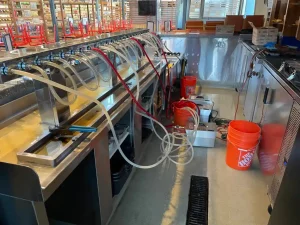
Our view as we watch the bacteria, yeast, mold, beer stone, and cleaning chemicals leave the draft beer lines of another happy DBI client.
Here at Draft Beer Intelligence, our standards and commitment revolve around you; the brewers, restaurants, bars, hospitality, and consumers. Clean beer lines will ensure the appearance, aroma, and flavor experience intended by the brewer is delivered pint after pint.
So, let’s give your customers a reason to keep coming back! Contact us anytime if you have questions or need support with your draft beer line and beer faucet cleaning.
Check out our other similar posts:
How To Clean Your Draft Beer Lines and Faucets
How Clean Is Your Draft Beer System? (proper cleaning recommendations included)
The Dirty Secret You Don’t Know About Draft Beer Line Cleaning Regulations
How To Know If Your Glassware Is Beer Clean & Why It’s Important
